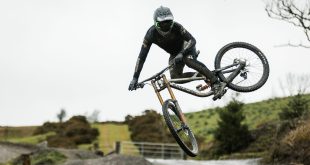Britain’s Chris Hoy is the favourite to win gold in the keirin event at the Beijing Olympics. Hoy switched to the keirin after the UCI decided to pull his previous event from the Olympics. The kilometre event had been in the modern Olympics since the very start but the UCI culled the event following a vote by national cycling federations which many believe to have been rigged.
Now the Union Cycliste Internationale, recently weakened by the decision of all the top pro teams to withdraw from the UCI’s ProTour, is again at the centre of a major controversy.
A BBC investigation has raised concerns that the keirin – a big-money Japanese event, fuelled by cash from gambling – may have bought its way into the Olympic Games. Documents given to the BBC suggest that £1.5m was paid by organisers of the Japanese cycling event to the UCI. The then president, Hein Verbruggen, was also flown around the world at the expense of Japan’s Keirin Association.
The BBC investigation says: "In 1992, the [UCI] was considering dropping the keirin…But four years later the tables had turned completely.The keirin was formally accepted by the International Olympic Committee in December [1996] and entered competition in Sydney in 2000. So how did such a remarkable turnaround occur? For years there have been rumours in cycling that the Japanese gave money to the UCI in return for its promotion of keirin as an Olympic event. According to one member of the UCI at the time, the Japanese donated a ‘big envelope’ in return for access."
The UCI is no stranger to accusations of behind-the-scenes dealings. In 2005 BikeBiz.com accused the UCI of rigging a vote to rid the Olympic Games of the kilo, a move akin to the world athletics body ditching the 100 metre sprint.
This accusation was raised again earlier this year in ‘Heroes, Villains and Velodromes: Chris Hoy and Britain’s Track Cycling Revolution’, a book by award-winning writer Richard Moore.
The book is much more than a biography of Hoy, it’s a dissection of how Britain went from being a pariah nation on the boards through to the world’s all-conquering track team, better even than the Australians.
It reveals the stunning levels of professionalism and dedication that go on behind the scenes at the Manchester velodrome, HQ for British Cycling.
The book also has six pages on the BikeBiz.com battle with the UCI. BikeBiz had created a ‘save the kilo’ petition which quickly gained 10,679 signatures including lots of top cycling names from around the world.
The BikeBiz editor Carlton Reid and trackie Julie Dominguez took the petition to the UCI and met with Pat McQuaid, then UCI president in waiting, now the actual UCI president.
McQuaid accused the the International Olympic Committee of requesting the kilo to be pulled. The BikeBiz editor grabbed a wifi connection in the dining hall of the UCI’s HQ and put this story online. Reid and Dominguez then hopped on a train to the Olympic HQ in Lausanne and by the time they got there, the IOC’s PR man had already read the story and was waiting with an official rebuttal of McQuaid’s claim.
Moore’s book recounts this tale and also re-interviews McQuaid at the Aigle HQ. However, where Reid and Dominguez were able to access minutes of UCI management committee meetings in the HQ’s library, Moore wasn’t able to put his hands on them.
He writes: "Management committee meetings are no longer available for open public inspection. I wonder if they were removed after Reid’s visit?"
Moore said he feels some sympathy for McQuaid as "he doesn’t come across as self-important" but he doesn’t think he’s the real power at the UCI:
"The impression I’m left with is that many of the decisions he defends might not be his in the first place; he appears not to be fully in power, as his predecessor, Hein Verbruggen, certainly was. Indeed, it is rumoured that Verbruggen – now a high-flying member of the IOC – still wields considerable power in the UCI. And there appear to be other powerful people at the UCI, less high-profile, operating in the shadows. The lack of transparency is shocking."
With the UCI still reeling from the collapse of its money-making ProTour, the last thing it could have done with is a high-profile BBC investigation into its decision-making process. Verbruggen denies any wrongdoing.
 BikeBiz Bicycle and cycling retail news
BikeBiz Bicycle and cycling retail news



